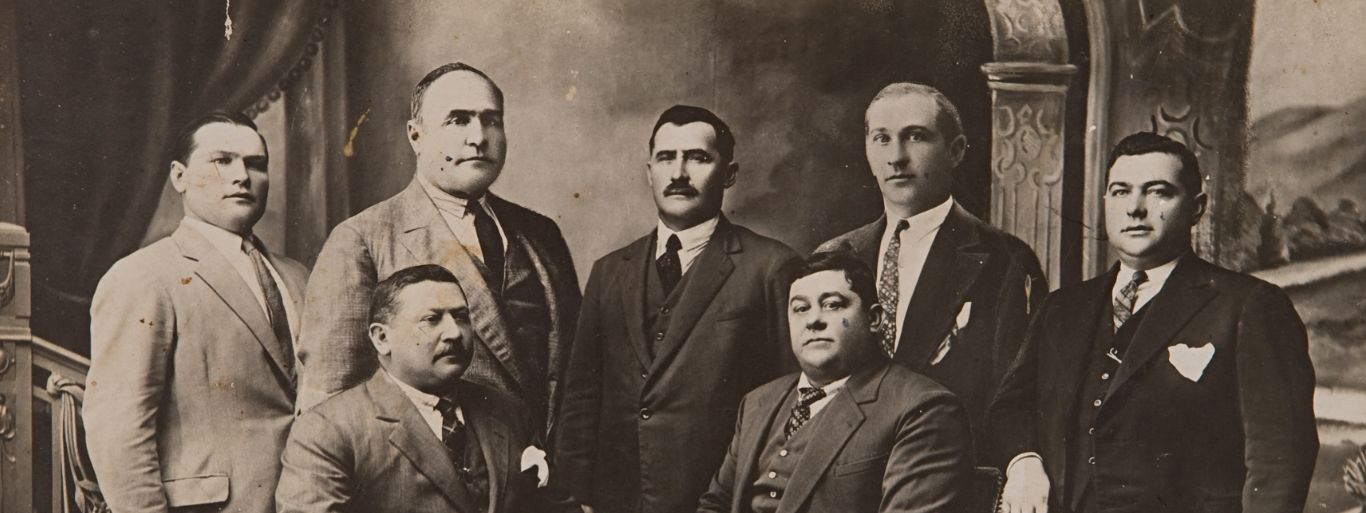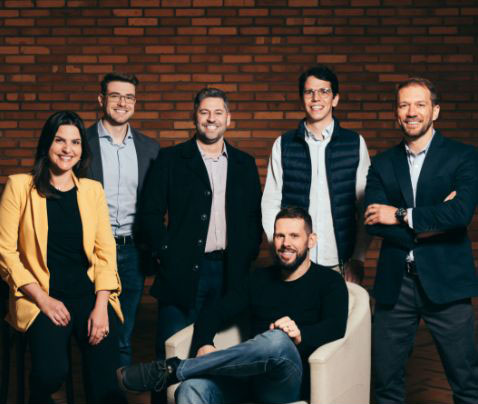This story begins in Italy, in 1878, when Antonio Domenico Salton left the town of Cison di Valmarino, in the Veneto region, searching for better opportunities in Brazil. He settled in the Italian colony of Vila Isabel, nowadays known as the city of Bento Gonçalves, in the state of Rio Grande do Sul, Brazil.
The company was formally established in 1910, when the brothers Paulo, Angelo, João, José, Cesar, Luis and Antonio gave an entrepreneurial touch to the business of their father, the Italian immigrant Antonio Domenico Salton, who made wine informally, like most Italian immigrants did that time. The brothers began to cultivate grapes and produce wines, sparkling wines and vermouths, under the name “Paulo Salton & Irmãos”, in downtown Bento Gonçalves.

A century later, Salton is recognized as one of the main Brazilian wineries, leader in the commercialization of national sparkling wines in Brazil. Today, at the head of the winery, members of the fourth generation of the family preserve the legacy of its founder, Paulo Salton, supported by the values built over more than 100 years of history and inspired by the simplicity and hard work of the first generations.


In 1878, Antonio Domenico Salton, born in Cison di Valmarino, in the Veneto region of Italy, arrived in Brazil in search of opportunities, like many other Italian immigrants. He settled in the Dona Isabel colony (now Bento Gonçalves), where he married fellow immigrant Lucia Canei, with whom he had ten children. In 1884, they founded a “casa di pasto” (a small tavern or eatery) in front of the main church. There, they hosted travelers, served meals, and sold cheeses and cured meats. The wine served in the house was made from grapes harvested from the vines behind the establishment.

Paulo Salton, the eldest son, took over the family business after his father's death. In 1910, the “casa di pasto” was formalized, and in 1922, it became known as “Paulo Salton e Irmãos.” The entrepreneurial brothers José and Cesar expanded the family business to São Paulo, Latin America's main economic center, and in 1948 opened a Salton branch there.

The family's true vocation emerged a few years earlier, in 1933, when sparkling wine production began. Under the guidance of the local priest, in 1940, Antonio “Nini” Salton, the first family winemaker, created the “Vinho Canônico” (Canonical Wine), following the Vatican's recipe. To this day, the company produces and distributes this wine, used in liturgies in churches throughout Brazil. After Paulo's passing, the company was renamed “Vinhos Salton S/A - Indústria e Comércio Ltda.” in 1967, and later “Vinícola Salton S.A.”

In the 1960s, Salton earned the distinction of being the official supplier to the Presidency of the Republic, with its Presidente Wine, one of the first white wines to gain national recognition. In 1961, President Jânio Quadros chose it as his preferred wine, declaring, “Presidente wine is my wine.” The 1970s brought difficulties to Brazil's wine industry, which was less structured than multinational competitors and used outdated machinery. In this context, wine production in Bento Gonçalves declined, so the company focused on Presidente Brandy, a product launched in the 1950s and still produced today in São Paulo.

Production of fine wines began in 1999 with the Salton Classic line. Under the leadership of Angelo Salton Neto, the company underwent restructuring to focus on producing high-quality wines and sparkling wines with international standards. A new production facility was built in the district of Tuiuty, Bento Gonçalves-RS, inaugurated in 2004, featuring state-of-the-art technology from grape reception to bottling. With the goal of becoming a national benchmark in winemaking, Salton intensified investments in product quality, modernizing processes, and applying techniques that elevated its labels. Salton Talento (2002 vintage) was named the best red wine of the year in 2004, establishing Salton among the leading names in Brazilian wine. This success opened the door for other premium wines such as Salton Desejo Merlot and Salton Virtude Chardonnay.

Tradition continues to guide our processes, ensuring the essence of our craft — making wines and sparkling wines with the care of a small winery within a large company. Since 2005, we have led the national market for sparkling wines sold in Brazil (NIELSEN), a position we maintain to this day.

Under the management of Daniel Salton, operations began at Azienda Domenico in Santana do Livramento-RS, on the border with Uruguay. There, 95% of our own vineyards are cultivated, all trained on trellises and mechanically harvested. The site also includes a grape reception and winemaking facility, where the initial stages of wine and sparkling wine production take place before completion at the winery in Bento Gonçalves. That same year, the Terroir Salton program was launched to support partner grape growers — 40 rural producers across Rio Grande do Sul — setting standards of excellence in vineyard management with technical support and a focus on sustainability.

Facing challenges of maintaining a factory in South America's largest city, the Complexo Presidente was inaugurated in Jarinu, São Paulo state. This modernization brought updated equipment, process optimization, a significant production increase, and the development of new products in the following years — including vodka, gin, and cachaça.

Maurício Salton became CEO in 2018, and Gregório Bircke Salton, winemaker and technical director, in 2020. Both from the 4th generation, they joined a young and professional leadership team. Preserving the tradition of a century-old company while keeping it dynamic and innovative became the main challenge of this new management. Salton became the first Brazilian wine brand to top the Wine Brand Power ranking (Wine Intelligence, 2019) — an achievement previously held only by foreign brands — and the following year, it became the first Brazilian winery to celebrate 110 years.

In addition to becoming Brazil's #1 sparkling wine brand (Wine Intelligence and Adega Ideal survey), Salton achieved a record in sparkling wine exports to the United States in 2021. The brand accounted for 96% of all Brazilian sparkling wine sold there, placing Brazil as the world's 5th largest exporter in the category that year. The following year, Salton published its first Sustainability Report, transparently compiling its sustainable actions, performance, and commitments. Since then, the company has shared annual updates with stakeholders about its social and environmental impacts, challenges, and progress. Highlights include Brazil's first greenhouse gas inventory in the wine sector, developed in partnership with a university, and projects leading to herbicide-free harvests in our own vineyards. Sustainable vineyard management, preserving local fauna and flora, was evidenced by a rare sighting of the Pampas Cat (Leopardus colocola munoai), a highly endangered feline that found refuge at Azienda Domenico.

Reviving the family business founded by Antonio Domenico and Lucia Canei in the late 19th century, Casa di Pasto Salton was opened along the Caminhos de Pedra (Stone Paths) tourist route in Bento Gonçalves-RS. It was designed to offer unique food-and-wine experiences paired with award-winning labels, in different settings that evoke the warmth of home. The space was developed with a pioneering focus on accessibility in Brazilian wine tourism. In partnership with a local university, the project promotes inclusion for people with disabilities, creating memorable and inclusive experiences. That same year, Salton also launched the Wine Tourism Accessibility Guide and the Wine Glossary in Libras (Brazilian Sign Language) — both groundbreaking and free publications, developed through academic research and collaboration with people with disabilities in the community.